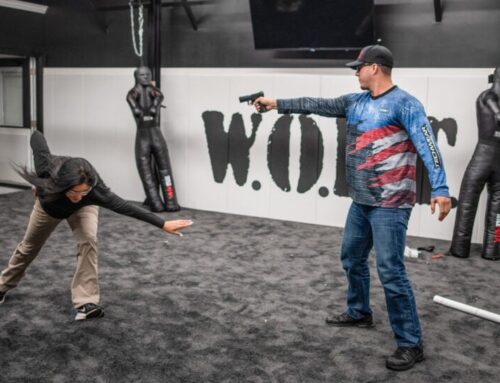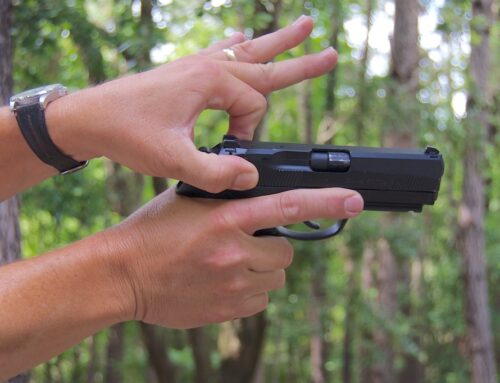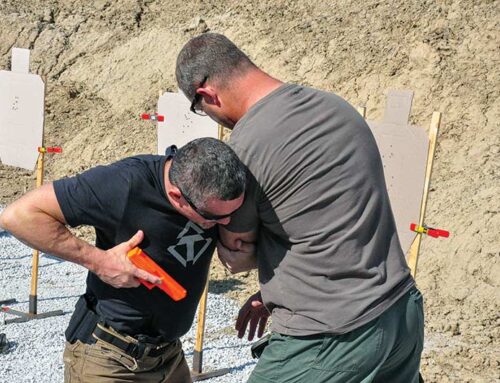
This article originally appeared at Ammoland.
If you carry a gun for personal defense or keep one at home for the same reason, you really ought to consider investing in a paid self defense insurance or protection plan.
Here’s why. If you ever have to draw or use your gun (or another weapon) in self-defense, you can be legally right yet still lose everything. Unfortunately, there are far too many cases of armed citizens being ruined by unbearable costs of criminal charges and civil lawsuits. You might be tossed in jail and burdened with tens of thousands of bail. You might need to pay your attorney a hundred thousand dollars – or more – for your defense, even if you were right in the first place.
Don’t believe me? Just ask Jay Rodney Lewis. Attacked by drunks in a road rage incident, he spent 112 days in jail awaiting trial before he was exonerated because he couldn’t fork up the $225,000 bail. Or Harold Fish. After shooting a crazed attacker on a mountain trail, he was arrested, and a bad judge railroaded him through an unfair and arguably illegal trial. Before his wrongful conviction was overturned, he racked up nearly $500,000 in legal bills.
The bottom line is this. You can do everything in a self defense shooting right yet still lose everything, including your freedom. Over the past several years, a number of self-defense liability protection insurance plans have come onto the market.
While it’s important to study and understand all the details before choosing the coverage that’s right for your needs, we’ll review some of the high points of a few of the best concealed carry insurance plans here.
- USCCA Self-Defense SHIELD Plan
- Second Call Defense
- Armed Citizens Network Insurance
- NRA Carry Guard
USCCA Self-Defense SHIELD , Self Defense Insurance
USCCA Shield self defense insurance is a pro-active self-defense liability plan. Simply put, that means if you get in trouble even though you did the right thing, they pay up front to help you out with no deductible. Unlike other plans, you don’t need to find a hundred grand or so up front and hope to get reimbursed down the road if you’re found innocent. Here’s how it works.
Silver, Gold, and Platinum plans all do essentially the same thing but have different levels of benefit caps for things like bail amount, initial attorney retainers, legal fees, civil lawsuit defense and damages, and compensation while you’re in court and not working. If you find yourself in a bind, contact the USCCA 7x24x365 for immediate assistance with bail and to line up a local attorney. The USCCA Legal Advisory Board will work with your local attorney to make sure your defense plan is consistent with the proven self-defense legal strategies. If there are criminal charges, the plans will cover your attorney fees subject to plan level limits. If there is a civil case, the plan covers not only legal fees but judgments up to plan limits. The plan also coordinates expert witnesses to testify on your behalf. The protection isn’t firearm specific, it covers self-defense regardless of the weapon involved.
The self defense insurance plan costs range from $13 per month for the Silver level to $30 for the Platinum level which provides up to $1,150,000 in total protection benefits.
Second Call Defense Insurance
Second Call Defense aims to provide “trigger to trial: protection for its members. That’s a great way to think about the coverage because if you’re ever in a life-changing situation, then the last thing you need to be worrying about are all the details related to retaining a lawyer, dealing with bonds and bail, and all the rest. If you go with the top-end plan, you’ll get up to $100,000 in criminal defense protection, $250,000 in civil suit damages protection, and unlimited civil suit legal defense protection. A standout feature of Second Call Defense is that they cover accidental shootings as well with up to $250,000 in protection if you choose the top plan. As with other options, you also get $25,000 immediate bond benefits, $10,000 immediate funding for your attorney’s retainer and help with cleanup and psychological counseling. If you’re out of work as a result, you can get reimbursed up to $500 to help with lost wages.
Armed Citizens Network , Insurance Pool
Like the USCCA SHIELD programs, the Armed Citizens Defense Network provides help up front, when you need it. This program operates as a member co-op with contributions being pooled into a defense fund to benefit network members.
If you get in trouble, the network will help with bail fees up to $25,000 and pay legal fees subject to review by the Armed Citizens Network. That means right when your case is submitted, experts from the network will expect to see reasonable evidence that the incident in question was a legitimate self-defense scenario. Upon agreement that such evidence indicates you were acting in the right, then benefits are provided. The network is continuously accumulating a legal fund and plan terms specific that your maximum legal defense benefits can be up to half of the membership pool. So, if the pool is currently one million dollars, then a member might expect up to $500,000 in legal assistance if necessary.
The Armed Citizens Defense Network Advisory Board is comprised of some of the most knowledgeable and reputable people in the self-defense industry, so you’ll be in good company.
NRA Carry Guard , Concealed Carry Protection
The National Rifle Association is making a lot of noise with their new Carry Guard offering. This plan contains a variety of training and post-incident protection benefits. The most important thing to know about Carry Guard is that it operates more like after the fact insurance. There are up front benefits limited to 20% of plan caps, but the big dollars are subject to a spend and reimburse model. In other words, you write the checks for your legal defense, and if you’re ultimately found innocent, you get reimbursed. The NRA states that this works fine in most cases as “Most criminal defense attorneys will not require payment of final bills until after your case ends…”
Call me skeptical, but I’ve not yet met a lawyer who was peachy with getting paid down the road. It’s something to check out in more detail if Carry Guard looks like the right solution for you.
There are currently four plans ranging from Silver to Gold Plus. Benefits range from $250,000 to $1,500,000 for civil damages and $50,000 to $250,000 for criminal defense fees. As with other plans, there are benefits for lost wages during trial, legal coordination assistance, and so on. NRA Carry Guard also has the program structured as individual insurance policies backed by Chubb, so there aren’t group policy limits that could come into play.
NRA Carry Guard is also making a big investment in associated training, although much of that is not yet released. From what we can tell, there will be training options both online and in person, but it’s not yet clear what the fee model will be for Carry Guard Members, so stay tuned as the program evolves.
Some Final Considerations On Self Defense Insurance:
The devil is in the details, and it’s up to you to understand exactly what your chosen plan provides. For example, most plans have a bail bond benefits. While the plan may pay your bondsman the 10% of bail amount to get you out of jail, you may still need to pledge assets to the bonding agent. If bail is $100,000, then you’ll have to pay a bail bondsman $10,000, and your plan may cover that.
However, if you skip town, the bondsman is on the hook for the additional $90,000, so they’ll likely want some assurance backing that money.
For plans that are insurance-backed, such as ones for civil damages, the insurance company will be the one responsible for any payments, so they’ll likely assume an active role in your defense strategy. You’ll be taking on a legal team partner whether you like it or not. These aren’t necessarily good or bad things, you just need to be aware of them up front. You’re the one ultimately responsible for everything, so be sure you understand the details before deciding on the best self defense insurance for you.







I’m wondering why you didn’t review the two best self defense protection organizations available, imo, CCW Safe and US Law Shield?
Mainly space 🙂 But also because the US Law Shield does not yet have all coverage options available nationally. I think the bail and expert witness coverage is still only available in a couple of states.
[…] Read more: https://mygunculture.com/need-self-defense-protection-plan/ […]
I have several firearms but have yet to use them for self-defense. I understand that using a gun in such a situation can possibly save my life or the lives of others. However, how can I legally be in the right when using it for self-defense purposes and still end up with criminal charges?